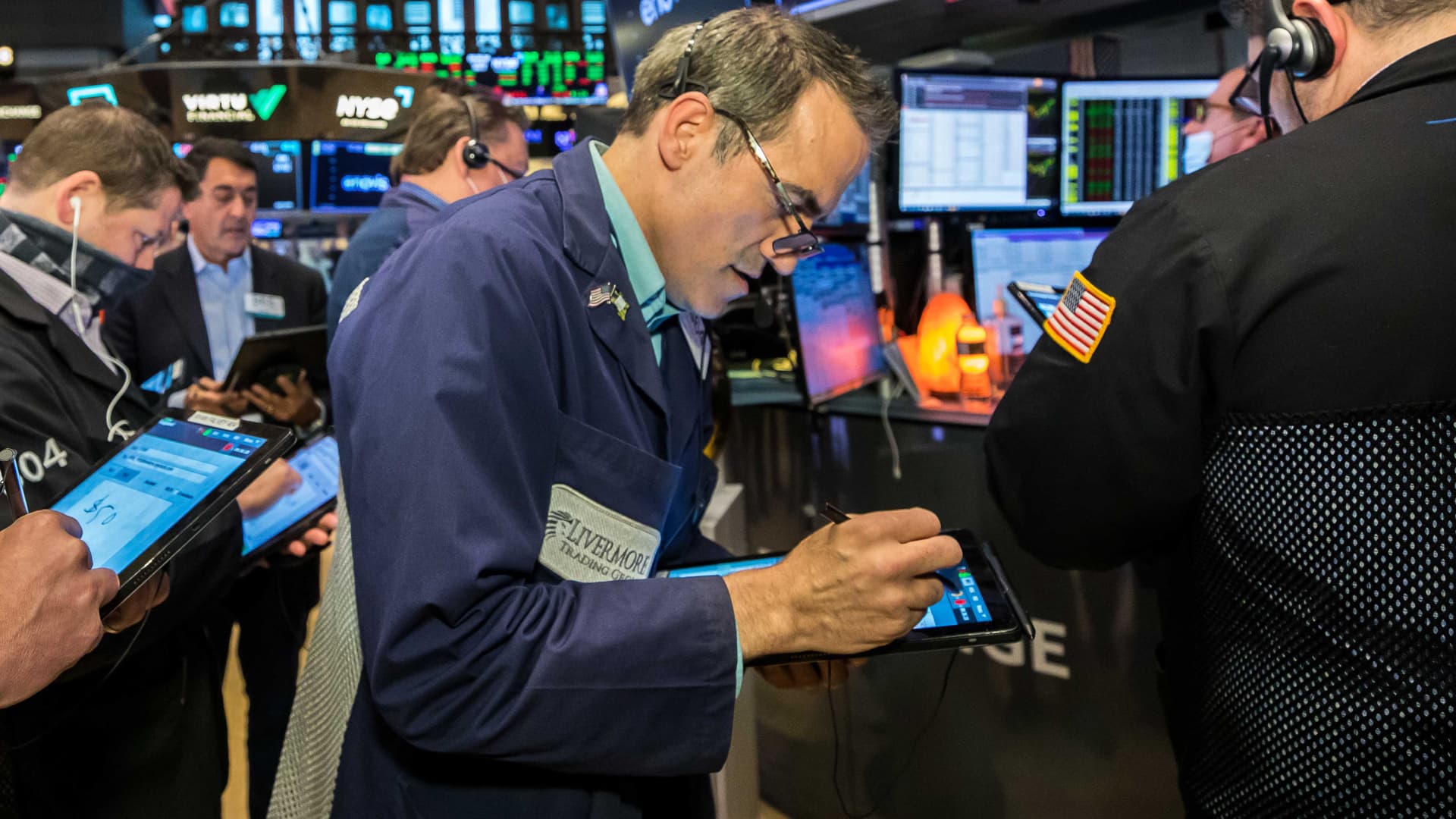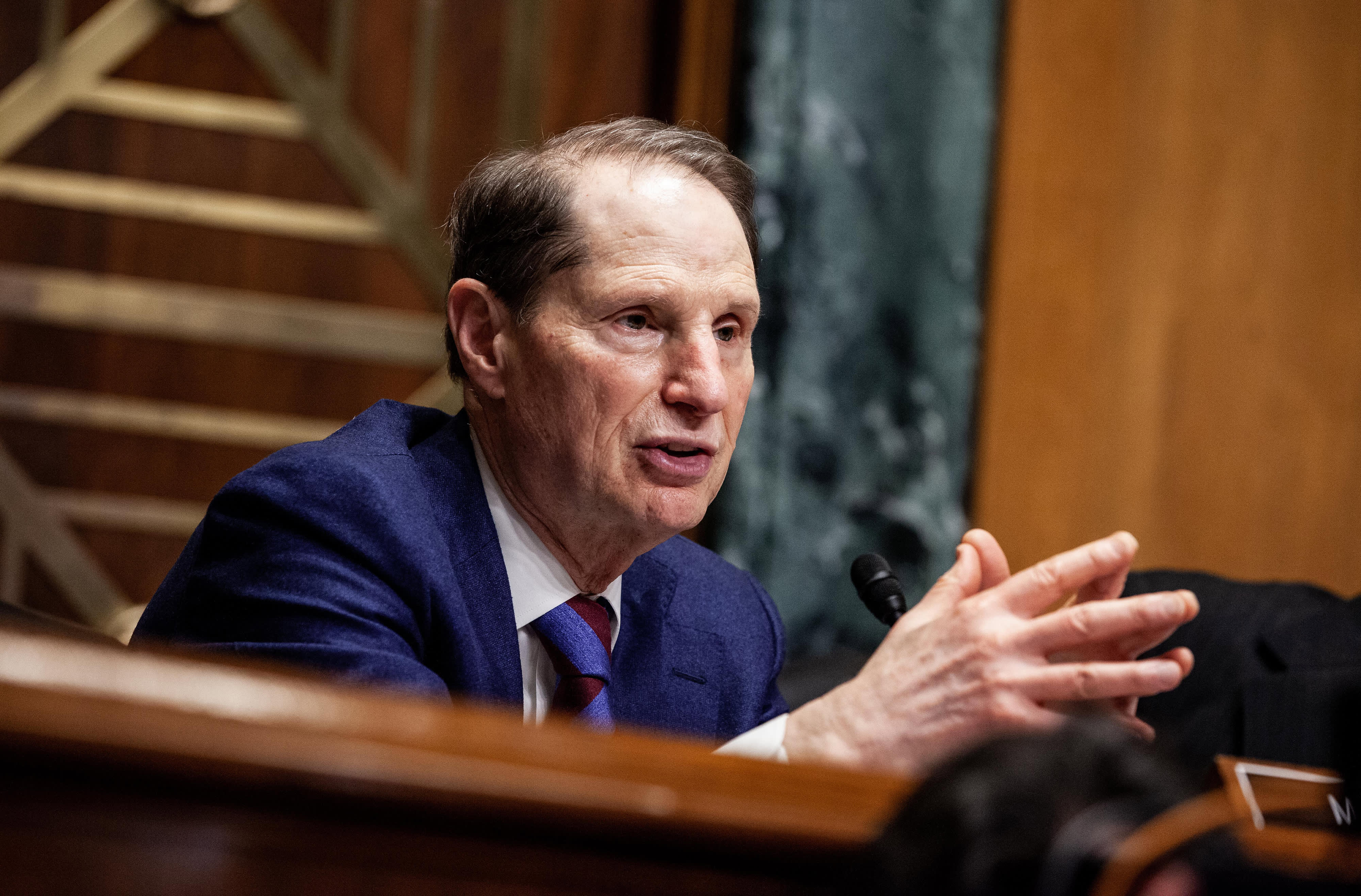Stocks fall to start the week as rates keep jumping
Stocks fell on Monday as interest rates continued to climb on concerns over tighter monetary policy from the Federal Reserve.

Stocks fell on Monday as interest rates continued to climb on concerns over tighter monetary policy from the Federal Reserve that could slow economic growth.
The Dow Jones Industrial Average fell 180 points, or 0.5%. The S&P 500 dropped 1.2%, while the tech-heavy Nasdaq Composite declined 1.8%.
Those moves came as the 10-year Treasury yield hit a high of 2.78%, or its highest level since January 2019 when the 10-year yielded as high as 2.799%. Yields move inversely to prices and 1 basis point is equal to 0.01%.
"If we were to stack up what's moving the markets today, I think we're just mirroring what we're seeing in the Treasury yield environment," said Art Hogan, chief market strategist at National Securities. "And it's hard to know what's going to break that cycle except for a couple of days/weeks where rates either stabilize or are starting to pull back a bit."
Concerns over higher interest rates have spurred investors to drop more risky assets, such as tech stocks that led losses on Monday. Microsoft declined 3.8%. Semiconductor stocks like Nvidia and Advanced Micro Devices fell 5.3% and 4.3%, respectively.
Airline stocks as a group gained after markets opened. Delta Air Lines spiked 4%. Alaska Air Group was up 2.7%, American Airlines Group jumped 2.8%, Southwest Airlines ticked upward 2.6% and United Airlines Holdings jumped 2.6%.
Meanwhile, shares of AT&T led gains with a 5.7% pop after officially spinning off its old WarnerMedia to merge with Discovery. JPMorgan analysts liked the decision, giving AT&T an overweight rating and saying the stock is now trading at a discount.
Twitter's stock was on the move after CEO Parag Agrawal revealed that Elon Musk abandoned his plan to join the company's board. Shares for the social media company dropped more than 8% in the premarket, but had recovered to trade just 1% lower by the open.
The fight against inflation is likely to be a market driver this week. Investors will get a look at fresh data, with the consumer price index for March due out on Tuesday and the producer price index following on Wednesday.
Cleveland Fed President Loretta Mester told CBS' "Face the Nation" on Sunday that she still believes the Fed can get inflation under control without causing major damage to the economy.
Stock picks and investing trends from CNBC Pro:
"If you look at the risks, given what's happening in the world and in the economy, there is an increased risk [of recession]," she said. "But I remain optimistic, and certainly my modal forecast on what is going to happen this year is that the expansion will continue."
Mester added that the Covid lockdowns in China will "exacerbate" the supply chain issues that are contributing to inflation in the U.S.
Later this week, the first-quarter earnings season will hit its stride with some major banks and airlines reporting earnings. On Wednesday, JPMorgan and Delta Air Lines will report their earnings before the bell. On Thursday, Citigroup, Goldman Sachs, Morgan Stanley and Wells Fargo are expected to report before markets open.
Investors are also keeping an eye on developments in Ukraine. Russia's invasion of the country has caused volatility in oil and other commodities markets, which has, in turn, disturbed stocks.
Oil prices declined on Monday. The price for West Texas Intermediate crude dropped 3.9% to $94.42 per barrel. The price for Brent crude dropped 3.7%, to trade at $99.01.
Wall Street is coming off a negative week, with the tech sector being a source of concern. The tech-heavy Nasdaq Composite fell 3.9% last week, while the S&P 500 and Dow dropped 1.3% and 0.3%, respectively.
Correction: A previous version of this story misspelled Mester's last name.

 Troov
Troov 































